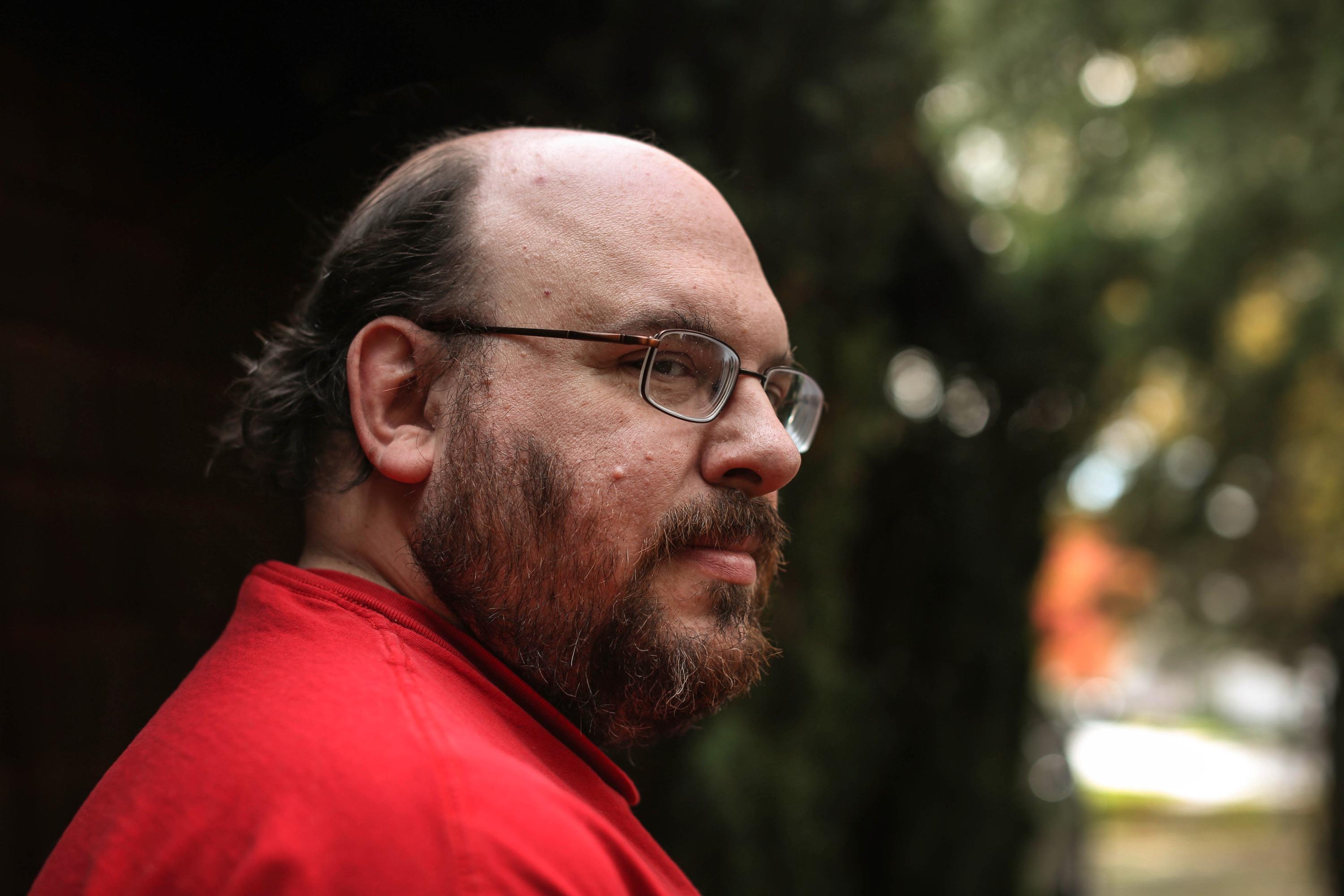
Jordan Lund stands outside his home.
John Rosman / OPB
Jordan Lund describes himself as "the whitest guy you're going to know."
"If I was any whiter I'd glow in the dark ... I'm typical Portlander."
Lund, tall and bearded, grew up in Eugene but has lived in Portland for two decades. He's very proud of where he comes from. Despite all the growth of the past two decades, this still feels – fundamentally – like home.
"Politically I am incredibly liberal. My biggest problem voting for Hillary Clinton is that she’s entirely too conservative."
Race isn’t something Lund thinks about often. He knows Oregon has a troubled history — that for generations, people of color weren’t even allowed to own land here. But from his vantage point — he works in tech in downtown Portland — that's the stuff of history lessons.
"The thing I learned growing up as a kid was certain cities in Oregon had the sign at the border saying, 'Don't let the sun set on you in our town.' Grants Pass used to do that. I don't believe they still do. That was always prominent, but it was always portrayed as the old school rules that don't apply anymore, like 'women can't wear pants.' It was wacky laws from before I was born, never really thought it would still apply," he said.
Except, those laws continue to resonate, generations later. They impact the way Oregon looks – Portland is one of the whitest cities in the country, and Oregon is one of the whitest states. And they impact the way the rest of the country sees this place Lund loves so.
Related: Mixed-Race Woman Learns To Answer 'What Are You?'
"I used to work for a company that caused me to spend half my time in Portland half my time in the Chicago area … I was taking a cab to get around and talking with the cabbie. It came up I was from Portland. The very first thing he asked me was, 'Portland, huh? You don’t have much trouble with black people out there, do you?' "
Lund was stunned.
"It made me really kind of reconsider the image that we have, and when I represent myself as a Portlander out in the world, is this the first thing people are thinking?
"I didn’t know what to say, I didn’t know how to react. My brain started turning over, ‘This is the first thing people say about my city?’ I just kind of turned it into a joke, I said, ‘You’re right, I know both of them, and they’re both pretty good people.'”
He meant that as a joke, sort of.
"Portland does not have a very diverse community. It's gotten better in the 20 years I've been here, but there are not a lot of other races here. They have certain communities, but on a daily basis you could walk through downtown Portland and not see anybody who is not white."
As a progressive – as a guy who would rather pick U.S. Sen. Bernie Sanders or California Gov. Jerry Brown for president – that lack of diversity bothers him. Still, Lund said he doesn’t see much racism in his day-to-day life. He’s certainly never experienced it.
"Against me? No. The differentiator I experience is because I'm male. I've had a lot of anti-male sentiment. I lost a job because of it. Because somebody didn't like having talking to a guy. Such is life."
Lund doesn’t like the rhetoric of Donald Trump’s presidential campaign. He recognizes that his own industry has a diversity problem when it comes to both people of color and women. And he worries about his adopted hometown — but for reasons other than racial tensions.
"I think Portland had a variety of problems. Race is definitely one of them, yes. But I don't know that we could classify it as the most important problem. if you look at the homeless situation, there's definitely an income inequality problem, a mental health problem. there are a whole lot of more pressing problems besides race."
And despite his politics, he struggles to find sympathy or kinship with the Black Lives Matter marchers who occasionally disrupt his commute home to protest police violence.
"I do pay attention to them. I think primarily as somebody who works in downtown we tend to be aware of things like that more because of the disruption it causes. I don't think the disruption they do is particularly productive. It takes people who would ordinarily be on their side and go, why are they doing this to us? The Portland Police didn't shoot anybody recently that I’m aware of. If they want to be productive in their protests, they should go to where these events are happening."